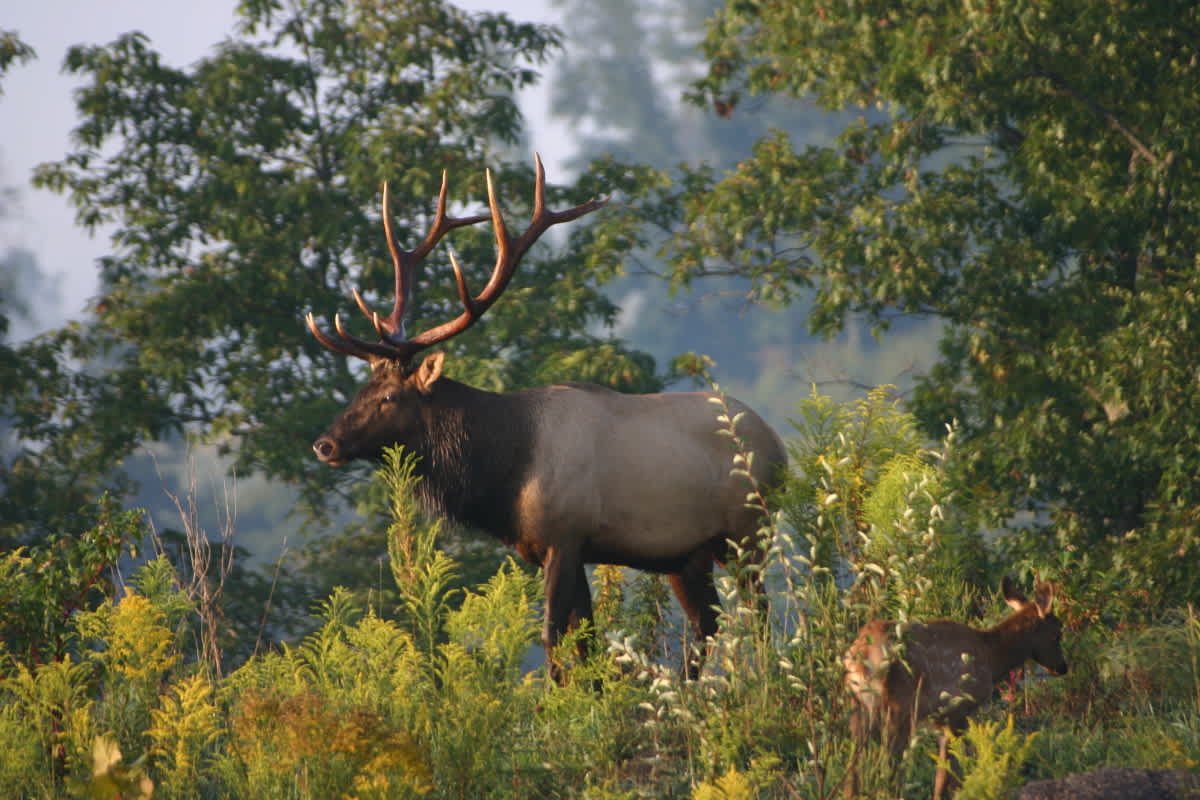Kentucky 2013-14 Elk Season Opens with Archery Hunting for Bulls

Kentucky’s elk seasons open Sept. 21 with bull elk archery season. Biologists with the Kentucky Department of Fish and Wildlife Resources hold a positive outlook for the upcoming elk seasons.
“We think it will be a productive elk hunting season,” said Tina Brunjes, deer and elk coordinator for Kentucky Fish and Wildlife. “Our elk hunters have excellent success rates.”
Last season, elk hunters in Kentucky took 595 elk comprised of 39.5 percent male and 60.5 percent female. There were 900 permits awarded for the elk quota hunts in 2012.
The number of elk hunting permits increased to 1,000 for the 2013-2014 elk season. The first Kentucky elk hunts began in 2001 when Kentucky Fish and Wildlife issued 12 permits. The herd goal is 10,000 elk.
“We have the new system in place that we think hunters will find better distributes hunting pressure and maximizes hunter opportunity,” Brunjes said. “A hunter with an At-Large tag now has eight counties to search for a place to hunt. Although we have a lot of public access where our elk herds are most numerous, we are excited to see the number of elk harvested from private lands continues to increase.”
Hunters may now choose between the At-Large North and At-Large South hunting areas or three limited entry areas (LEAs). Kentucky’s elk restoration area encompasses 16 counties and roughly 4.2 million acres.
The key to a healthy herd is the harvest of cow elk, the reason Kentucky Fish and Wildlife issues 750 cow elk tags and 250 bull elk tags.
Bull elk, however, are the draw for most hunters.
“Kentucky bull elk hunters have a success rate of about 90 percent for harvesting bull elk with a firearm,” Brunjes said. “Most of our hunters are taking mature bulls.”
The typical bulls taken are 3 ½ years to 5 ½ years old. A 3 ½ year-old bull has already grown a 4 x 4 antler rack and a 5 ½ year-old bull usually has 6 x 6 antler rack that scores about 280 inches in the Boone and Crockett scoring system.
Minimum entry into the Boone and Crockett record for an elk with typical antlers is 360 inches. So far, three bull elk with typical antlers harvested in Kentucky qualified for entry into the Boone and Crockett record books.
Terrell Royalty set the record with a typical bull elk taken in Knott County in 2007 with a modern gun that scored 371 inches on the Boone and Crockett system.
The bull elk archery season debuted in 2011. Hunters enjoy an extraordinarily high success rate for these hunts since, averaging about 60 percent.
Brunjes explained the reason bull elk archery hunters are so successful is partly based on the timing of the season. “The bull elk archery season opens at the beginning of the bull elk rut and runs throughout the rut,” she said. She also said the limited number of bull archery tags makes for a well balanced hunt.
“Also, the bull elk archery hunters put in a lot of sweat equity,” she said. “They do their homework.”
The bull elk archery season closes for the first time Oct. 4. The second segment of this season opens Oct. 19 and runs until Dec. 13. The third segment begins Dec. 28 and ends Jan. 20, 2014. The cow elk archery season mirrors the final two segments of the bull elk archery season.
The first week of bull elk firearms season opens Oct. 5 closes Oct. 11. The second week of this season runs from Oct. 12 through Oct. 18. The first week of cow elk firearms season opens Dec. 14 and closes Dec. 20 with second week of opening Dec. 21 and ending Dec. 27.
The crossbow season for either sex bull runs Oct. 19 and Oct. 20 from Nov. 9 through Dec. 13 and Dec. 28 through Dec. 3.

